One Hell of a (Fat) Character
Ages ago, I wrote a post as part of an arts series titled “Big Fat Abstraction.” This is another part of that series, except this time I cover fiction and how to develop stories and characters. You can apply this advice to fictional novels, short stories, screenplays, or any written form.
In my opinion, there is only one thing in fiction that is worse than devolving into stereotypes: overwriting a story or character.
Once you take a step back and look at your writing, it is easy to tell when you have devolved into stereotypes if you are familiar with the stereotypes that exist in literature or your genre of fiction. Some stereotypical characters include:
- The popular, but mean girl
- The mysterious hunk of a guy who never talks
- The boy with thick glasses and freckles who loves computers
- The new girl/boy in town who changes everything
- The Asian math geek
- The career woman who pines endlessly for a man and children
Some stereotypical story lines include:
- Someone who moves from the city to the country, hates it at first, then learns to love The Simple Life™
- The man who starts his adult life fucking around, then gets a girl pregnant and magically Takes Responsibility™, transforming into a super family man
- Poor boy from village saves fantasy world from evil invaders
- Boy meets girl
- Someone fucks up his life in every way possible, but once he turns to Jesus at the last minute, everything goes right again
- Shy girl stops being such an introverted dork and gets popular
- Fat girl is bullied for her weight, tries really, really hard, and gets to be a size two in the end, complete with friends and Hawt Boyfriend™
This is not to say that these people don’t exist or that these stories don’t happen. They are just used so often in fiction that they lose their impact and all start to look the same. Granted, if you’re gifted in the satire department, you could use these stereotypes for humorous or campy effect, but not everyone can do that. You could also use these story lines and adapt them by changing the setting, adding an interesting character arc, etc. I’m not saying that you should never use those story lines, just that you need to be careful when using clichéd plotlines to keep it fresh.
Anyone who is well-read in literature, theatre, or film can identify some common stereotypes and clichés and learn to avoid them. However, it is just as problematic to use what are referred to as counter-stereotypes that can be harder to recognize. It is a problem in all types of fiction, but I am especially aware of it in works of social justice themed genre fiction.
The first thing that comes to my mind is queer fiction. Many works of queer fiction revolve around stories of coming out and providing positive queer role models. Characters often face prejudice, but they win in the end.
Another example is contemporary Christian entertainment. Bible verses are quoted every few lines. Nonbelievers taunt Christians, only to be converted in the end. Christians themselves face temptation and manage to defeat it. All is well. I can see this temptation in fat fiction as well. When the subject is not about fatties desperately fighting the battle of the bulge, the subject is fat people poking fun at their fat, being bullied for their fat, and maybe beating their bullies down.
Basically, the temptation is to make the topic the center of the story and of the character’s development. To some extent, this is useful because it gives some badly-needed perspective to a culture that can be biased against certain people. It was once unheard of to see positive portrayals of homosexuals, or even to have them be open about their homosexuality. It was necessary at one point to show gays and lesbians living average lives and serving their families, their loved ones, and their communities. Now, we have a wealth of queer fiction works that follow similar story lines and it is time to move on.
In order to avoid this trap, I don’t mention the body size or shape of my characters unless it’s relevant to the immediate story. For example, one of my characters is deaf. I do not mention this right away because it is not relevant to the story. In scenes where there is a great deal of auditory stimuli — battle scenes, having a conversation — I refer to it in a sidelong manner.
Example:
Lucia leaned forward to read Addison’s lips but she was speaking too softly. Finally, Lucia gave in and took her hot pink processor back out of her pocket.
If a character is fat, I might refer to her getting dressed. My fat character is Goth, so her clothes are an important mode of expression for her, which gives me the opportunity to discuss her features.
Example:
“Why is nothing here in my size?” Katarzyna sighs with frustration. Lucia shrugged and pulled out some corsets, all of which had the right size but which absolutely would not fit. Katarzyna was beginning to regret wasting her gas on this trip.
I just pulled those out of my ass, but they work for the purpose of this post.
Discussing prejudice in stories is more complicated. Prejudice is a daily reality for many of us, and it’s both a critical and entertaining subject matter in fiction. Yet that doesn’t excuse us from avoiding old clichés. My advice is to make most expressions of prejudice subtle. Most prejudice in real life is not blatant, and the subtlety keeps your readers wanting to know more. Why read when we already know someone is a bigot about to get served?
Furthermore, don’t let them take over the story. The bulk of the story should be about how characters appreciate themselves as they are and how they overcoming obstacles. Again, make this subtle. Make sure we know your character likes her body without making body love the whole story.
Make body size a part of the whole character. If your character loves artistic expression, maybe you can work a body love subplot into her love of fashion. There is a fine line between totally ignoring the issue and letting it take over. On one hand, I don’t want to fall into clichés, but on the other hand, the fact that my characters are fat and disabled is important for people to notice. I want to make sure they notice. How you keep the balance is entirely up to you and it depends on your story.
Perhaps the most important piece of advice I can give as a writer is to allow your character to not be perfect.




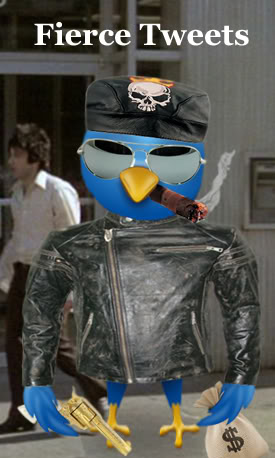



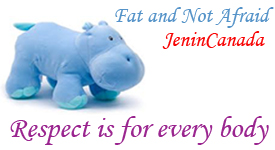

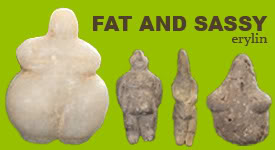
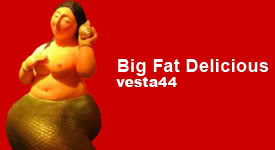




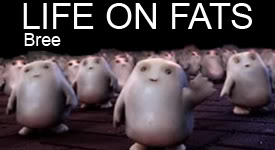
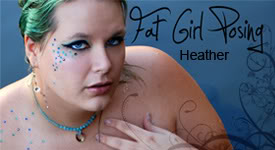



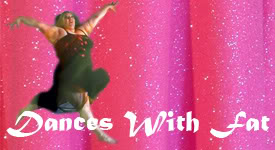

This is one of the reasons I quit reading romance novels - there are just a certain number of ways that romance novels are plotted/written and about the only thing that ever really changes is the locale. After you’ve read about 15 or 20 of them, they all get to be the same - only the names and locales really change, the plots stay the same, the stereotypes about women, men, and their relationships stay the same (and what fun is reading, really, when you can read 3 or 4 Harlequine romance novels in one day?). But I’m finding that the more I read (and I’ve read a lot in my 58 years of life), the more most books are looking like most others I’ve already read, even across genres like science fiction/fantasy, horror, crime, mystery, paranormal, etc (and I’ve read several thousand books in my life).
Hiya. I’ve been reading for a while but never commented before!
I read Christian fiction sometimes and I noticed one book at least where weight-loss was a major feature of the book, and I even saw a listing for a book that promoted “God’s weight-loss plan”! I must say that when I read a book, characters’ weight isn’t something I am terribly interested in, maybe if they are anorectic or similar and it is a part of the story, but weight loss? There is enough stuff about dieting in women’s magazines and in the news without inserting that message into fiction that is otherwise pleasant!
I also agree about Christian - and other - fiction stereotypes. I find the Christian stuff unhelpful as it makes folk think that you convert and boom! suddenly all your problems disappear when that just isn’t true. Then people feel guilty. It particularly impacts on people who are poor, disabled, mentally ill, etc.
Welcome out of the shadows of lurkerdom, Emma! There are quite a few “Christian” weight loss programs. Sadly, I think that for every profitable secular business, there will be a Christian-based one to capitalize on it, whether the owner are genuine Christians or not. And I totally agree that simplistic invitations to be baptized as a “cure” for all your worldly ills is pretty misguided. I understand where they’re coming from, but not much changes before and after baptism, except, maybe, your own perspective.
Peace,
Shannon
I found the book, its (rather chillingly) called “10 Lessons From A Former Fat Girl: Living with Less of You and More of Life” I find rather suspect anyone who wants there to be “less of me” - are they threatened by me or something?
It might just be me, but the way you worded the segment about Lucia and Addison, ended up coming off as mysterious and sexy to me. That’s a good thing, lol.
Entirely my intention, lol.